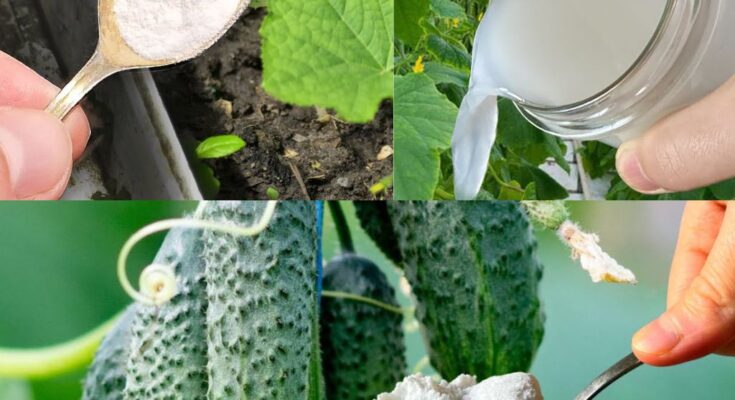Home Garden Tips

Bicarbonate in the garden, the 10 uses for your plants that you didn’t know yet
Bicarbonate: An Essential Asset for Your Garden’s Health – Discover 10 Surprising Uses for Your Plants
Unveiled Secrets of Bicarbonate in Gardening You might already be familiar with bicarbonate’s prowess in the kitchen and bathroom, where it battles limescale and unpleasant odors. However, its application extends into the garden realm, where it harbors secrets to enhance plant vitality and ward off unwanted intruders. Gardeners and florists have long relied on this humble compound to preserve cut flowers’ freshness and combat bacterial growth in vases. Here are ten lesser-known applications of sodium bicarbonate that could revolutionize your gardening experience.
Understanding Sodium Bicarbonate Sodium bicarbonate, commonly known as baking soda, is a versatile sodium salt derived from carbonic acid. Beyond its role as a food additive (often labeled E 500), it serves various functions including digestive aid, sanitizer, whitener, therapeutic agent, and exfoliant. While its benefits are manifold, it’s crucial to be aware of potential side effects such as fatigue, vomiting, hypertension, nausea, edema, and excessive thirst.
Harnessing the Power of Sodium Bicarbonate in Your Garden Unlocking the potential of sodium bicarbonate in gardening opens doors to cost-effective solutions for nurturing your plants and cultivating a thriving vegetable patch.
Accessible and versatile, baking soda finds its place not only in personal care and household cleaning but also in safeguarding plants from pest attacks and fungal infestations. Simply incorporating a spoonful of sodium bicarbonate into the soil can fortify plants’ defenses and deter fungi formation.
Combatting Mold and Weeds Sodium bicarbonate emerges as a potent weapon against mold and lichen colonies thriving on garden paving slabs. A mixture of water, bicarbonate, and citric acid can effectively cleanse outdoor surfaces while promoting soil health and combating fungal threats.
Additionally, troublesome weeds can be thwarted with a solution of water and baking soda, making it an eco-friendly alternative to chemical herbicides. For targeted elimination of invasive plants like digitaria, a spray bottle filled with a bicarbonate solution proves to be highly effective.
Maintaining Soil pH and Enhancing Plant Health Ensuring optimal soil pH is crucial for the well-being of acidophilic plants like basil and hydrangea. Incorporating a teaspoon of sodium bicarbonate into the soil can help stabilize pH levels, fostering healthier plant growth.
Furthermore, the addition of bicarbonate not only extends the longevity of cut flowers but also acts as a disinfectant for gardening tools, ensuring a hygienic environment for your green endeavors.
In summary, sodium bicarbonate emerges as a versatile ally in the garden, offering a plethora of benefits ranging from pest control to soil health maintenance. By tapping into its potential, you can elevate your gardening practices and foster flourishing plant life while embracing eco-friendly solutions.



